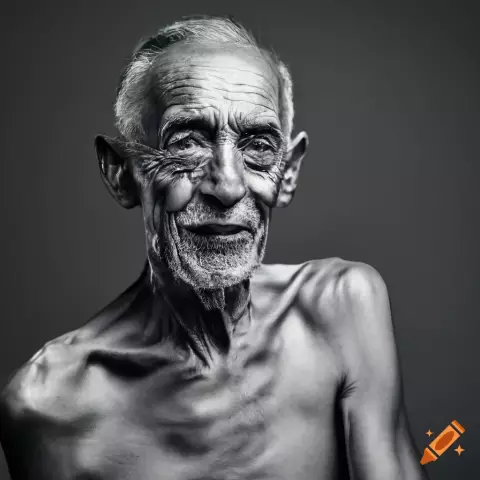- Author Rachel Wainwright wainwright@abchealthonline.com.
- Public 2023-12-15 07:39.
- Last modified 2025-11-02 20:14.
Psychology of the elderly

The average life expectancy of a modern person is much higher than that observed earlier in his ancestors. This means that the venerable age becomes an independent and rather long period of life with its own psychological and social characteristics. And although the aging of each person occurs individually, but as numerous studies show, there are still characteristic differences between the psychology of the elderly and the lifestyle and worldview of middle-aged people.
Aging processes and psychology of older people
Aging is an inevitable process. It is characteristic of any living organism, is progressive and continuous, accompanied by degenerative changes in the body. According to the WHO classification, the elderly is considered to be a person from 60 to 74 years old, later the old age comes. However, it should be taken into account that any scheme for identifying and classifying the regression age is rather arbitrary.
The psychology of the elderly has its own characteristics. The aging process is a physiological, psychological and social phenomenon. During this period, the whole life of a person undergoes serious changes. In particular, there is a decrease in the physical and mental strength of a person, deterioration in health and a decrease in vital energy.
Destructive tendencies cover almost all functions of the body: the ability to memorize decreases, the reaction rate slows down, and the work of all sense organs worsens. Thus, people over 60 years old represent a separate social group that has its own characteristics and needs. And the psychology of the elderly and senile age differs from the views on the life of the younger generation. With general age characteristics, several types of old age can be distinguished:
- Physical - aging of the body, weakening of the body, the development of diseases;
- Social - retirement, narrowing of the circle of contacts, the feeling of their uselessness and worthlessness;
- Psychological - unwillingness to acquire new knowledge, complete apathy, loss of interest in the world around, inability to adapt to various changes.
Around the same time, with the retirement of a person, his status changes, therefore, late age is also called retirement age. Changes are taking place in the social sphere of life, his position in society is becoming somewhat different. Because of these changes, the elderly face many challenges on a daily basis.
Moreover, it is rather difficult to single out only psychological problems, since the deterioration in health or financial situation is always experienced quite strongly, which cannot but affect the psychology of an elderly person. In addition, you have to adapt to the new conditions of your life, although at a later age, the ability to adapt is significantly reduced.
For many older people, retirement and retirement from work is a serious psychological problem. First of all, this is due to the fact that there is a large amount of free time in which you need to occupy yourself with something. According to the psychology of the elderly, job loss is associated with one's own worthlessness and worthlessness. In such a situation, the support of the family is very important, ready to show the old man that he can still be of great benefit by doing some housework or raising grandchildren.
Features of the psychology of the elderly
According to the results of gerontological studies, after 60-65 years, a person's attitude to life changes, prudence, calmness, caution and wisdom appear. A sense of the value of life and self-esteem also increase. The peculiarity of the psychology of the elderly also consists in the fact that they begin to pay less attention to their appearance, but more to their health and internal state.
At the same time, there are also negative changes in the character of a person of venerable age. This happens as a result of the weakening of internal control over reactions. Therefore, most of the unattractive features that were previously managed to hide or mask come to the surface. Also, in the psychology of the elderly, there is often self-centeredness and intolerance towards those who do not pay enough attention to them.
Other features of the psychology of the elderly and senile age:
- Hypertrophied perception of reality. This is primarily due to the fact that the life of an elderly person is not rich in events. Therefore, even a minor incident fills all thoughts. He reflects on it for a long time, and does not always come to the right conclusions. Hence, anxieties, fears, and far-fetched problems arise that do not have any grounds;
- A kind of sense of time. A feature of the psychology of the elderly and senile age is the constant presence of the past in present life. At an older age, a person seeks to stop time, to return to it the spiritual and moral values inherent in the period when he was young and healthy. This can explain the love of all old people for memories. According to experts, emotional experiences associated with young years are beneficial for older people, since they drive out apathy, give vigor;
-

Psychology of the elderly - causes of age-related changes Mastering a new social role. After retirement, the old industrial contacts still remain for some time, which weaken further. Communication with close people and relatives gradually begins to prevail, new friends appear among the same pensioners. The psychology of older people often involves rethinking values and past attachments;
- Development of increased psychological defense. On the one hand, it helps to maintain inner peace of mind, but on the other hand, it brings a negative effect, which is expressed in the unwillingness to receive new information or change the way of life, and self-isolation arises.
The psychology of the elderly has its own characteristics, so it is not always easy for the younger generation to understand the fears and concerns of the elderly. However, society needs to be more patient and attentive to the needs of older people.
Found a mistake in the text? Select it and press Ctrl + Enter.






